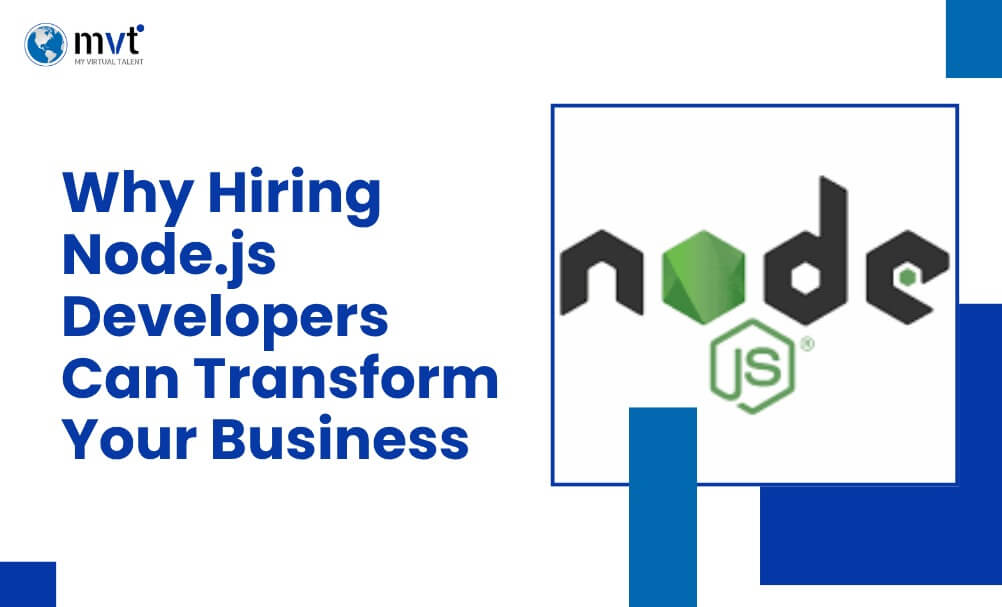
Knowledge Process Outsourcing (KPO) transforms the management of complex, knowledge-intensive processes for companies. Businesses can have access to expertise and know-how, which could be scarce or too expensive to develop in-house, by moving such processes to firms specializing in appropriate expertise and knowledge.
It helps companies not only cut costs better but also increases the flexibility in operation terms. Under Knowledge Process Outsourcing (KPO), an enterprise can keep those core competencies to themselves and outsource market research, financial analysis, and other highly technical services to specialists. Such selective outsourcing of certain business functions leads businesses to avail themselves of the best global talent, innovate faster than ever, and be leaders continuously in their industries.
Transforming Business Operations with Knowledge Process Outsourcing (KPO)
The value proposition appears strategic, focusing on exposure to global expertise and more sophisticated analytical capabilities that would be difficult to find inside the company. Thus, this kind of outsourcing differs from general business process outsourcing, which deals with more complex intellectual tasks associated with specialized knowledge.
With a pool of experts available all over the globe, Knowledge Process Outsourcing (KPO) companies can cater to them in areas like pharmaceuticals and biotechnology, education, market research, financial services, and so on. This way, businesses can augment their capabilities for innovation and decision-making using the best global methodologies and insights- things that are impossible to find locally.
It goes way beyond efficiency: while firms gain significant cost savings from outsourcing knowledge-intensive work, the added value now derived is from keeping abreast of every development in the industry and technological advance.
1. Legal Process Outsourcing (LPO):
Legal Process Outsourcing Legal Process Outsourcing forms an important segment of Knowledge Process Outsourcing. It means the outsourcing of complex legal work, which can be legal research, contract management, and litigation support to outsourced service providers. This model is characterized with extremely positive effects-there are enormous cost savings while at the same time permitting access to specialized legal expertise which may not otherwise be available within the organization.
An LPO works to utilize the intense knowledge of both the law and technology in order to innovate low-cost solutions for routine and complicated processes related to legal work. With this outsourcing, the companies can concentrate once more on the core business activities while making sure that attention is paid to these legal obligations in an efficient and accurate manner.
This strategic use of KPO further enhances operational efficiency and improves scalability in the handling of increased work volume without compromise on quality or performance.
2. Advanced Technologies Integration:
KPO organizations are focusing on newer technologies like AI, ML, and big data analytics to achieve increased automation of mundane tasks, support of an analytical decision-making process, and improve the efficiency of the operations across their organizations. All the above types of integration enable KPO organizations to offer their clients more complex services such as more profound analysis of data, complex automation, and even predictive insight.
With these cutting-edge technologies in place, Knowledge Process Outsourcing (KPO) providers will enable speed and accuracy in the services the KPO firm offers while developing innovative solutions that add appreciable value to their clients’ businesses. These technological benefits are changing the very form of operations for KPO firms and are making them indispensable partners in the modern business landscape.
3. Focus on Core Activities:
KPO provides major cost advantages to companies as the complex work will be outsourced to cheaper operational regions. In other words, it would result in huge labor and infrastructure cost savings for the company that takes this strategic decision. Companies can tap talent from a global pool where wages will likely be even more competitive with the local market but will not compromise on quality.
Outsourcing means minimizing the reduction of in-house ample facilities and reducing capital and operational costs concerning offices, technologies, and other resources. What’s more, apart from bringing in the cost-cut benefit, business prosperity increases flexibility and scalability through KPO, responding better to marketplace changes and demands.
4. Cost Efficiency:
Knowledge Process Outsourcing (KPO) offers the business world an opportunity to tap expertise in many niched fields, such as engineering, data science, or finance. Meaning, businesses are assured of qualitative service, especially meeting personal needs, by a global pool of experts without hiring any internal specialists.
This is particularly valuable for companies that require advanced knowledge and skills, which are hard to find or too costly to be maintained in-house. With Knowledge Process Outsourcing (KPO), companies can efficiently build their capabilities to innovate more speedily because of the inputs of top-tier professionals around the world, making sure they stay ahead in their respective businesses.
5. Access to Expertise:
Knowledge Process Outsourcing (KPO) not only enhances operational capabilities but also plays a crucial role in managing risk and ensuring compliance. KPO providers specialize in navigating complex regulatory environments across different industries and regions. By partnering with a KPO firm, businesses can rely on experts who are up-to-date with the latest compliance requirements and risk management strategies.
This support is invaluable, especially for companies operating in sectors such as finance, healthcare, and legal, where compliance with regulatory standards is stringent. Effective risk management through KPO helps companies avoid potential fines and legal issues, ensuring they maintain a strong and compliant operational stance. This aspect of Knowledge Process Outsourcing (KPO) is critical for maintaining the integrity and sustainability of business operations in a global marketplace.
6. Risk Management and Compliance:
It is a fact that many aspects about risk management and compliance itself will benefit the organization in terms of Knowledge Process Outsourcing (KPO). Managing businesses in today’s complexity of regulation requires professional expertise wherein lies the scope for engagement with KPO providers as there are specially acquired knowledge and interpretations of law and other relevant compliance requirements within different industries and markets.
A third area of KPO business benefits is how the high-level strategies of managing risks and its sources for regulatory compliance support often reduce, or eliminate, the potential legal issues with smooth operations maintained while keeping in place a strategic approach that will ensure constant regulation compliance and also maintain the company away from possible monetary penalties or reputational loss. Leverage KPO for risk management and compliance will enable business to focus more on core activities while banking on experts’ hands in terms of complexities of regulatory requirements.
7. Scalability:
Knowledge Process Outsourcing (KPO) offers businesses huge scalability advantages so that they can focus on the real growth or development of the business by adjusting operations flexibly in response to business demands without the heavy burdens associated with hiring and training new staff. This flexibility is critical in managing business cycles, where organizations can scale up or down quickly when needed.
Thus, Knowledge Process Outsourcing (KPO) allows skill use by companies in such domains without permanently keeping people and adds extra people at times of business being high or reduces when the business is slow, which otherwise would not contribute to efficiency and productivity but is quite inconvenient for permanent employment.
Operational agility directly supports businesses in sustaining efficiency and competitiveness because they can react or adjust to changes in markets or even project demands without the overhead of permanent staffing changes. It optimizes operational costs and enables the company to further enhance its response to the opportunities and challenges thrown up by the business environment.
Conclusion
Knowledge Process Outsourcing (KPO) is clearly not a strategy of cost-cutting; it’s a value-accelerating model of business growth and innovation. Business enterprise derives substantial sharpening of its competitive edge by accessing the expertise and advanced technological capabilities of KPO providers. The strategic alliance helps firms focus more on core growth activities to drive customer satisfaction rather than getting fettered on complex, resource-intensive tasks.
Then, Knowledge Process Outsourcing (KPO) continues to grow as a really important part of business strategies in various kinds of industries, promising not only efficiency in running operations but also huge contributions to business development and expansion. In doing so, it marks KPO as not simply a service but instead becomes a critical driver of long-term business success and innovation. If you have any questions about it, you can contact MyVirtualTalent at anytime, they’ll provide you with solutions.
Frequently Asked Questions (FAQs)
What is Knowledge Process Outsourcing (KPO) ?
KPO refers to the outsourcing of complex, information-related business activities which require higher levels of analytic and technical skills and decision-making capabilities to third-party service providers. Thus, KPO affords businesses the opportunity to tap into knowledge and expertise that businesses may not have in-house.
How does KPO differ from traditional BPO?
While BPO aims at outsourcing routine or administrative tasks requiring less specialized skills, KPO deals with tasks that require more extensive expertise and advanced analytical abilities. Knowledge Process Outsourcing (KPO) services include research, analysis, consultancy, and other high-level tasks that are essential for business decisions and strategy formulation.
What benefits does KPO bring to a business?
Advantages include cost cutting as well as access to highly specialized expertise with no need to recruit in-house, freeing up this time and focus onto critical functions of the business. In addition, KPO will further improve competitiveness and efficiency by tapping global talent and advanced technology to process big data complexities and bring actionable insights back home.
Looking for fresh content?
Get articles and insights from our weekly newsletter.
Recent Posts
Reduce Your Marketing Spend By 70% And Grow Your Revenue Organically 10X Faster!
Get a Free Quote Today!










